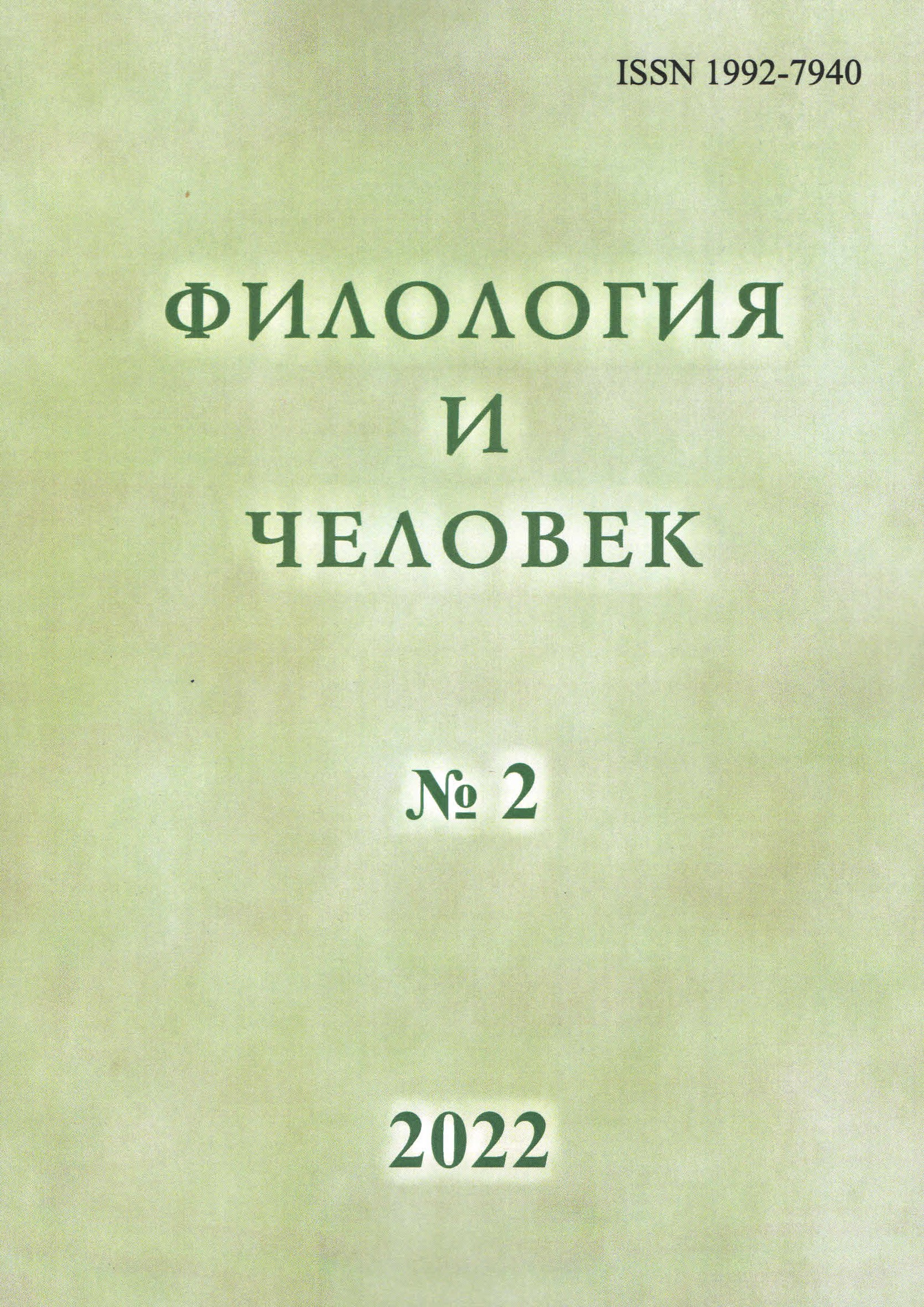The Child in the Colloquial Speech: Thesaurus and its Fixation
Abstract
The purpose of this study is to identify the main features of colloquiality and their specificity in children's discourse, to describe the problem of lexicographic fixation of children's thesaurus. The most typical manifestation of the redundancy of children's speech is reduplication. Words built on reduplication penetrate from children's discourse into the standard language and into other sociolects, acquiring new meanings. The analysis of lexicographic sources reveals a deficiency in the ideographic description of the child's world, the absence of the necessary lexicographic marks in dictionaries of a general type. Since the beginning of the 2000s, dictionaries of children's innovations and children's thesaurus have been published on the material of the Russian language, but for those studying foreign languages the absence of such ideographic dictionaries becomes an ethnographic gap that hinders intercultural communication.
Downloads
Metrics
References
Амзаракова И. П. Ребёнок: язык, текст, коммуникация. Абакан, 2012.
Бернгардт О. В. Речь ребёнка-билингва как предмет лексикографического описания: ситуация русско-немецкого двуязычия: автореф. дис. … канд. филол. наук. Ярославль, 2009.
Блинова О. И. К историографии типов мотивационных словарей // Вопросы лексикографии. 2012. № 2.
Гарганеева К. В. Мотивационный словарь детской речи / под ред. О.И. Блиновой. Томск, 2007.
Гридина Т. А. Объяснительный словарь детской речи: лексикографический аспект // Филологический класс. 2013.
Девкин В. Д. Немецкая лексикография. М., 2005.
Девкин В. Д. Немецко-русский словарь разговорной лексики. М., 1994.
Кротов В. Г. Подсказка души: Словарь детских афоризмов. М., 2003.
Несова Н. М. Грамматические и стилистические пометы в толковых словарях русского и английского языков: автореф. дис. … канд. филол. наук. М., 2007.
Ожегов С. И. Толковый словарь русского языка / под ред. Л.И. Скворцова. М., 2021.
Палкин А. Д. Возрастная психолингвистика. Толковый словарь русского языка глазами детей. М., 2004.
Урбаева А. П. Сфера употребления полной редупликации в немецком языке // Современные научные исследования и инновации. 2016. № 4.
Харченко В. К. Словарь современного детского языка. М., 2005.
Цейтлин С. Н. Словарь детских словообразовательных инноваций. München, 2001.
Черняк В. Д. О чем говорят названия словарей? Социокультурные аспекты современной лексикографии // Studia Slavica Savariensia 2016. № 1–2.
Augst G. Kinderwort: der aktive Kinderwortschatz (kurz vor der Einschulung), nach Sachgebieten geordnet, mit einem alphabetischen Register. 2. Aufl. Frankfurt a.M.: Lang, 1985.
Augst G. Schriftwortschatz: Untersuchungen und Wortlisten zum orthographischen Lexikon bei Schülern und Erwachsenen. Frankfurt a. M.; Bern; New York; Paris: Peter Lang, 1989.
Duden – Deutsches Universalwörterbuch, 5. Aufl. Mannheim 2003.
Список источников
Kinder: Ein fröhliches Wörterbuch / hrsg. von C.J. Frank mit Zeichnungen von Pete Field. Tomus-Verlag: München 2001.
SUBITO: Oma war beim Optimisten: Kinder über Gold, Gott und Vitamine / hrsg. von Anna Rademacher. Frankfurt am Main, 2006.
Teilkorpus Christiane (12;2) // Dortmunder Korpus der spontanen Kindersprache / hrsg. von Klaus R. Wagner. Essen: Die Blaue Eule, 1993. Bd. 5.
Редакционная коллегия научного журнала «Филология и человек» придерживается принятых международным сообществом принципов публикационной этики, отраженных, в частности, в рекомендациях Комитета по этике научных публикаций (Committee on Publication Ethics (COPE), Кодекс этики научных публикаций), а также учитываeт ценный опыт авторитетных международных журналов и издательств.
Во избежание недобросовестной практики в публикационной деятельности (плагиат, изложение недостоверных сведений и др.), в целях обеспечения высокого качества научных публикаций, признания общественностью полученных автором научных результатов каждый член редакционной коллегии, автор, рецензент, издатель, а также учреждения, участвующие в издательском процессе, обязаны соблюдать этические стандарты, нормы и правила и принимать все разумные меры для предотвращения их нарушений. Соблюдение правил этики научных публикаций всеми участниками этого процесса способствует обеспечению прав авторов на интеллектуальную собственность, повышению качества издания и исключению возможности неправомерного использования авторских материалов в интересах отдельных лиц.





